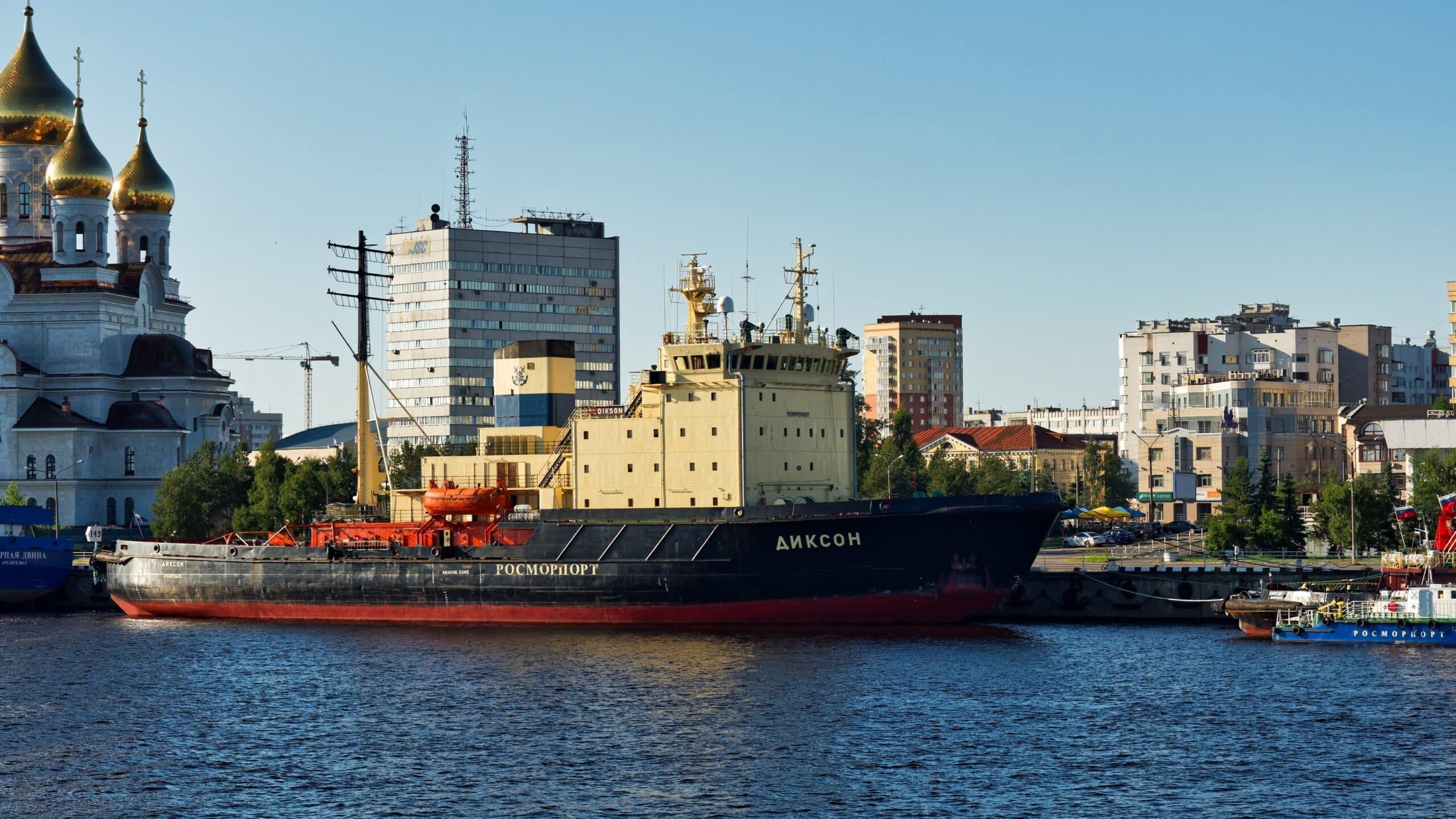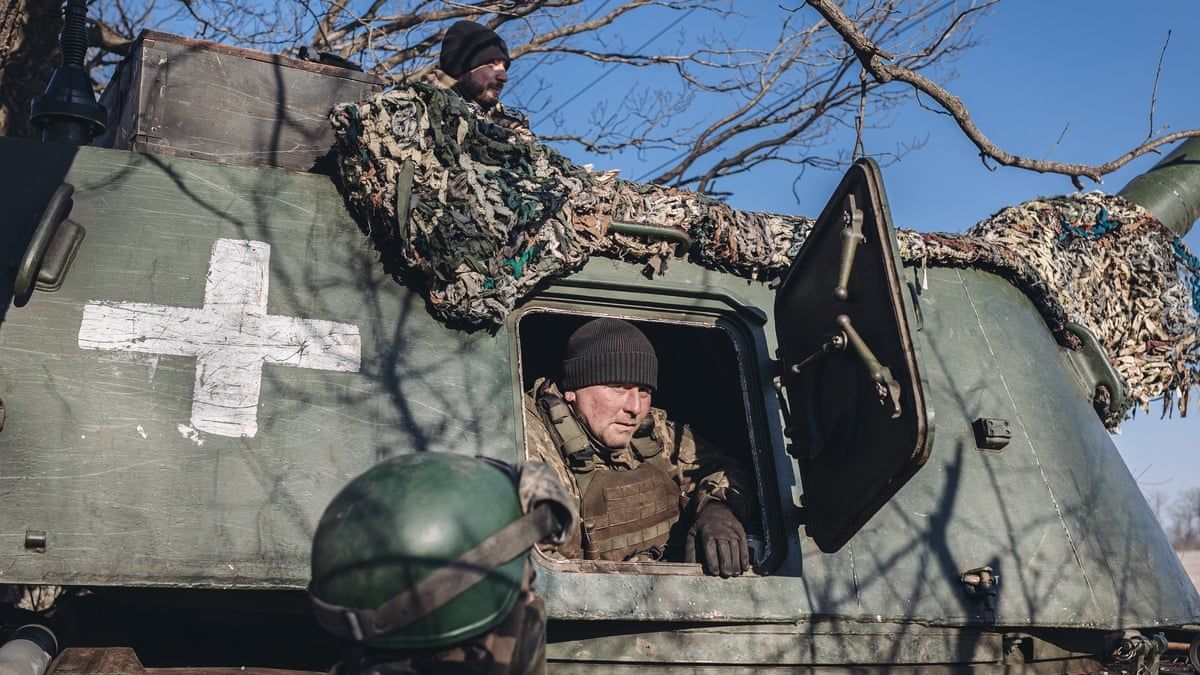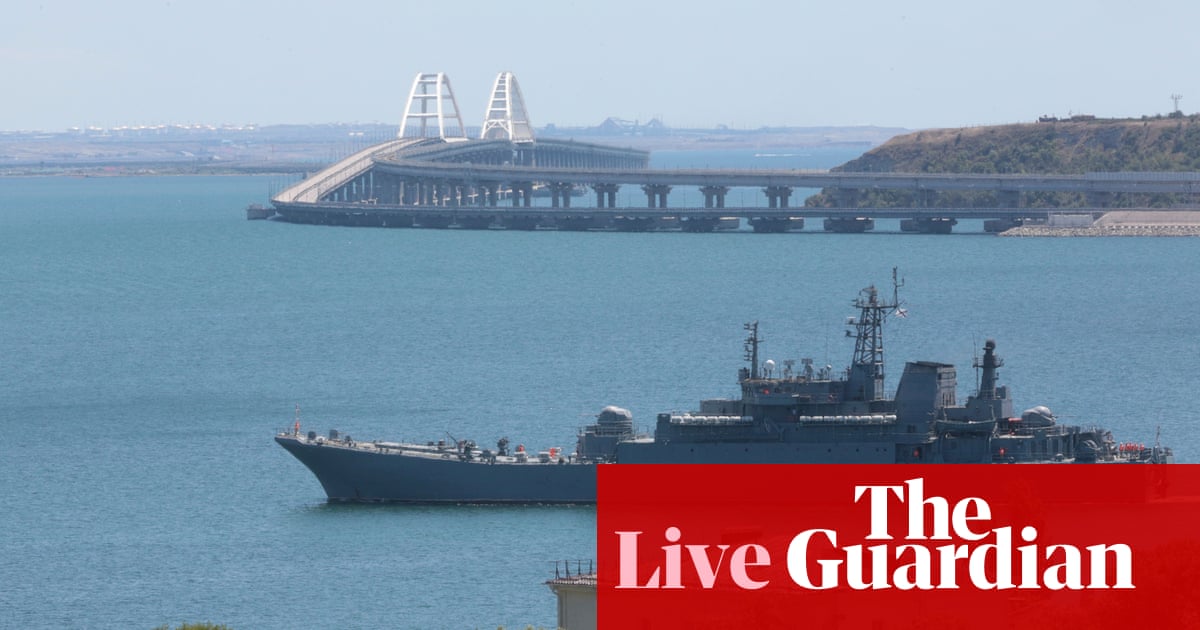









Following months of intense fighting in the ongoing Russia-Ukraine war, Ukrainian armed forces have successfully destroyed the large Russian landing ship Tsezar Kunikov off the coast of occupied Crimea in the Black Sea [02332f82]. The ship was in Ukrainian territorial waters near Alupka at the time of the attack [02332f82]. This marks a significant blow to the Russian military and demonstrates the Ukrainian forces' ability to defend their territory against Russian aggression.
In other developments, Russian bombing raids have resulted in the deaths of three people, including a child, near the eastern Ukrainian city of Donetsk [02332f82]. These airstrikes continue to cause civilian casualties and further escalate the humanitarian crisis in the region.
Meanwhile, Ukraine has launched nine drones over Russia's Belgorod and Voronezh regions, as well as over the Black Sea [02332f82]. This demonstrates Ukraine's determination to gather intelligence and monitor Russian military activities in the region.
The United States Senate has approved $61 billion in aid for Ukraine and sent it to the House of Representatives for a vote [02332f82]. This financial support is crucial for Ukraine's defense efforts and will help strengthen their position against Russian aggression.
Sanctions against Russia are having an effect, but there is a need for them to be broadened and more strictly enforced [02332f82]. The international community must continue to hold Russia accountable for its actions and ensure that there are consequences for its aggression in Ukraine.
It is worth noting that Russia has suffered significant losses during its invasion of Ukraine, with over 3,000 tanks destroyed [02332f82]. This highlights the resilience and determination of the Ukrainian forces, as well as the high cost of Russia's military campaign.
Russia is facing a serious problem in the Ukraine conflict as it is losing many tanks and artillery systems [981499bd]. Satellite images reveal dwindling stockpiles, indicating a material shortage for the aggressor [981499bd]. This shortage poses a significant challenge for Russia and could impact its ability to sustain its military operations in Ukraine [981499bd]. The tank shortage further underscores the high cost of Russia's military campaign and the resilience of the Ukrainian forces [981499bd].
The Wagner Group, founded by Yevgeny Prigozhin, has been involved in the battle for Bakhmut, Ukraine, resulting in heavy casualties [d8c35acb]. Prigozhin has threatened to withdraw forces due to a lack of support and ammunition [d8c35acb]. He accuses Defense Minister Sergei Shoigu and General Valery Gerasimov of failing to provide adequate support [d8c35acb]. The conflict has led to an estimated 100,000 Russian casualties, including 20,000 deaths [d8c35acb]. The possibility of prosecuting war crimes committed by the Wagner Group at the International Criminal Court (ICC) is being considered [d8c35acb]. Legal scholars are cautiously optimistic about holding the group accountable [d8c35acb]. The situation highlights the complexities of modern conflict and the quest for justice.
Valentina, a former gymnast, finds herself on the front lines of the Ukraine conflict after losing her loved ones. Her story of transformation and pursuit of justice highlights the resilience of Ukrainians amidst destruction and loss [6f69fbc8]. The battleground of Bakhmut has become emblematic of the broader conflict engulfing Ukraine. As Russian forces advance in Ukraine, capturing strategic locations like Avdiivka, Ukrainian defenders, including Valentina's unit, stand as the bulwark against further incursions. Valentina's journey to the front lines is fueled by a deeply personal vendetta. The loss of her boyfriend and a close friend to an enemy tank assault has galvanized her resolve [6f69fbc8].
The devastation wrought by the Ukraine conflict extends far beyond the immediate zones of military engagement. Cultural and tourist assets, once the pride of the nation, lie in ruins, and the humanitarian needs of the population continue to escalate [6f69fbc8]. The narrative of the Ukraine conflict is one of destruction, loss, and suffering, but it is also a narrative of resilience, courage, and the unyielding spirit of those who fight on [6f69fbc8].
Linor Goralik, founder of the Resistance and Opposition Arts Review (ROAR), discusses the shift in how Russian and Ukrainian artists have portrayed the war, the role of social media in amplifying oppositional art, and the porous borders between the dissident community inside and outside of Russia [d3cf472d]. She also talks about the dominant subcultures in Russia, the role of platforms like ROAR in cultivating audiences for artists, and the challenges faced by ROAR due to Russian authorities' attempts to interfere with its ability to publish [d3cf472d]. Goralik emphasizes the importance of understanding that Russian citizens have diverse wishes and want to live decent lives in a decent country. She calls for recognizing the emotional equality that can help bridge understanding between different cultures [d3cf472d].
Nearly 20,000 Russians have been arrested for anti-war messages since Russia's invasion began two years ago [eb094d53]. The Russian dissident community is fighting its own war, with thousands forced out of the country and many arrested [eb094d53]. Alexei Navalny, Putin's most prominent critic, was announced as having died in a penal colony [eb094d53]. The repression of dissent has brought the rise of a new wave of opposition, many of whom are women [eb094d53]. Evgenia Kara-Murza, wife of an imprisoned opposition figure, travels around the world in support of the Ukrainian fight against Putin's Russia [eb094d53]. Yevgenia Chirikova, an environmental activist, now supports Ukraine NGOs and offers consultations to avoid conscription into the Russian military [eb094d53]. Natalia Arno, founder of Free Russia, fled Russia and now offers support to the dissident community globally [eb094d53]. The fight against Putin and his war in Ukraine is crucial for the future of Russia and to weaken Putin's power [eb094d53].
Russia is considering denouncing the United Nations Convention on the Law of the Sea (UNCLOS) in the Arctic due to concerns over NATO activity in the region [a3d2aeb6]. However, Russia would still need to fulfill its obligations as a state even if it withdraws from UNCLOS [a3d2aeb6]. Russia's objections to the 'rules-based order' seem to conflate rhetoric with established international norms and agreements [a3d2aeb6]. The primary consequence of withdrawal would be Russia's inability to make use of the compulsory dispute resolution mechanisms provided by the convention [a3d2aeb6]. The Arctic region is of strategic importance to Russia, and withdrawing from UNCLOS could potentially undermine its interests in maintaining control over the Northern Sea Route [a3d2aeb6]. Russia views the Northern Sea Route as a viable maritime corridor for cargo transit between Europe and Asia [a3d2aeb6]. It is best to leave international law to qualified lawyers and avoid performative theatrics.
Putin's decision to invade and make a push for Kyiv in February 2022 caused speculation about his mental health. Despite having nuclear capabilities, Russia prefers its tried-and-true method of occupation. The goal is to establish a buffer they control easily, not a zone they have to patrol wearing hazmat gear. The war in Ukraine has brought up conversations about Russian alliances with North Korea, Iran, and China, but the logistics make these alliances unlikely. The conversation about the disruption of the American-led global order is more about how the U.S. decides to proceed with its global strategies. The Russians have discovered that the only way to make someone do what they want is to occupy them. The only time the Russians ever felt secure was after World War Two when they conquered all the buffer states. Russia's invasion of Ukraine has pushed Moscow to seek alliances with countries antagonistic to American leadership, but the deployment capacity and coordination among these countries are limited. The biggest danger to the American-led order will be if the U.S. starts interfering with global naval coverage for civilian shipping, which would disrupt the flows that benefit countries like Russia and China.
A year ago, Russian mercenary chief Yevgeny Prigozhin led an armed uprising, seizing a military headquarters in the south and marching toward Moscow to oust the Defense Ministry's leaders [9c1a9d47]. The rebellion was called off hours later, but it dealt a blow to President Vladimir Putin. Prigozhin, also known as 'Putin's chef,' founded the Wagner Group, a private military contractor, and gained attention in the U.S. for creating the Internet Research Agency. Wagner played a key role in capturing Bakhmut in Ukraine and gained a reputation for brutality. Prigozhin's rebellion was triggered by the Defense Ministry's order for Wagner to sign contracts with the regular military. Putin called it a 'betrayal' and 'treason.' Prigozhin's fate remains a mystery, as he died in a plane crash two months after the rebellion. Wagner mercenaries moved to Belarus, and a Wagner successor, PMC, was formed. Putin responded by cracking down on political foes and making changes in his Cabinet [9c1a9d47].
Russia saw a drop in crime levels as men joined the war in Ukraine, but the return of these servicemen is now leading to a surge in offending. Data shows a rise in non-war-related crimes by more than 20%, with violent offenses, theft, and drug-related transgressions increasing. The return of convicts who fought for the Wagner group is a particular worry, as their reintegration into civilian life poses significant challenges for law enforcement and society as a whole [59ddbd99].
The Wagner Group, a paramilitary organization with ties to the Russian government, has been active in Africa since 2017, contributing to regional instability and human rights abuses. Despite the death of its leader, Yevgeny Prigozhin, in 2023, the emergence of the Africa Corps indicates that Russia's covert strategies in the region will continue. Wagner's operations blur the lines between state and non-state actions, challenging accountability and international law. The group has been accused of human rights violations, including extrajudicial killings and torture, in countries like the Central African Republic (CAR) and Mali. Wagner's presence in Africa has countered Western influence, raised concerns about human rights, and facilitated the control and exploitation of natural resources. The Africa Corps, a new organization, is poised to assume Wagner's operations. Isabella Currie, an associate lecturer and PhD candidate, specializes in researching the Wagner Group's role in international relations. [7ca4fc80]